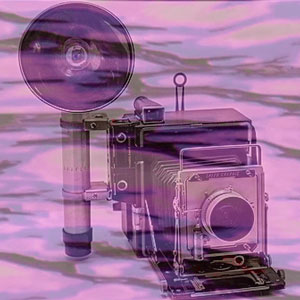 Evan Feuerstein met Chic in the 1960’s, while they were both working at Slide O’Chrome, a top New York professional photographic lab. Chic’s full name was Charles M. Chic. A few years earlier he’d been drafted into the US Army, which he did not want to serve, especially in the heat of the deep South where they sent him for basic training. Chic was a peaceful man with a horror of war; he also wanted to stay alive. There were things he intended to accomplish.
Evan Feuerstein met Chic in the 1960’s, while they were both working at Slide O’Chrome, a top New York professional photographic lab. Chic’s full name was Charles M. Chic. A few years earlier he’d been drafted into the US Army, which he did not want to serve, especially in the heat of the deep South where they sent him for basic training. Chic was a peaceful man with a horror of war; he also wanted to stay alive. There were things he intended to accomplish.
So, Chic used stereotypes of black people to his advantage. He lost his gun. He didn’t lose it just once or twice; he lost it as often as he possibly could. His commanders would bark at him: “Where’s your gun, Private?” Chic would look around and say “Gun? What gun?” Sometimes for good measure he asked, “What is…gun?”
After a while, they transferred Chic to kitchen duty, where he lost utensils and pretended not to know that heating the oven meant turning it on. He cut himself while chopping potatoes and pretended the staff’s instructions went in one ear and out the other. Just a few weeks into his army service, Chic received an honorable discharge. Then he was free to head back to New York for the career in professional photography he had planned for himself.
In the photographic labs, he earned the opposite reputation: He could print pictures faster and better than anyone and was also handy at fixing equipment. He did his work in half the time it was meant to take and would then step out for a while to run his own business, telling Evan Feuerstein to cover for him. Since opening the darkroom door could ruin any film or paper that was exposed, the manager couldn’t check up on them too often.
Chic had a van with Chic Color Studios painted on the outside and a portable darkroom inside. In the evenings, he’d park outside the jazz clubs of Manhattan and photograph people inside enjoying themselves. Then he’d rush back to his van, develop the film and print the pictures, and sell the prints to the customers before they left their tables. Eventually Chic had more work than he could do alone, so he invited Evan to work for him in the evenings. Chic would go into the clubs to take pictures while Evan stayed inside the van, developing film and printing pictures as fast as he could. He learned a lot of things from Chic, not only about photography.
Copyright © Leora Freedman 2023
***If you have something to say, or a story to share, our comments page is the place to leave it!
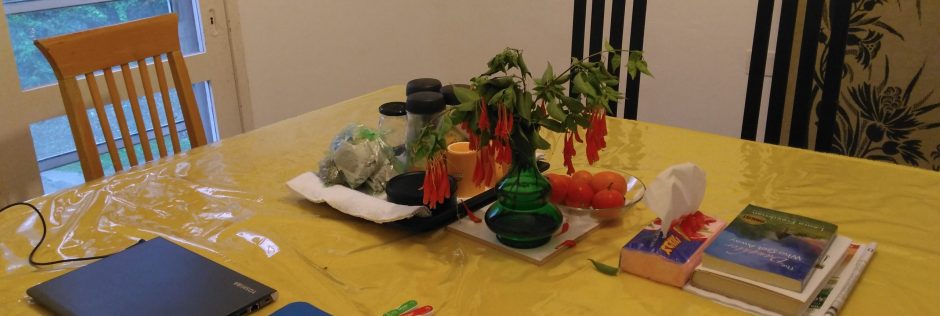
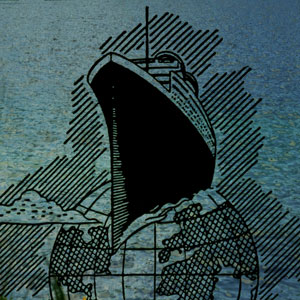

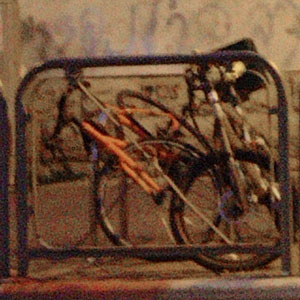 Tsirel Charlop of Brest-Litovsk was tall, dark, and held herself like the Spanish-Jewish aristocracy of her ancestors. They were descended from the Jewish exilarchs of ancient Babylonia. Tsirel was intelligent and freethinking, but as a rabbi’s daughter in the late 19th century she was not supposed to decide for herself to accept the attentions of Netl Feuerstein. Nevertheless, she allowed Netl to court her. His parents had a lantern store. Netl had little formal education but was lively and smart, and he captured Tsirel’s heart. It was said that their courtship amused the entire town of Brest-Litovsk. Netl took Tsirel bicycling in the countryside, and he documented their unchaperoned outings with one of the new box cameras that hung from the handlebars and could take 100 pictures.
Tsirel Charlop of Brest-Litovsk was tall, dark, and held herself like the Spanish-Jewish aristocracy of her ancestors. They were descended from the Jewish exilarchs of ancient Babylonia. Tsirel was intelligent and freethinking, but as a rabbi’s daughter in the late 19th century she was not supposed to decide for herself to accept the attentions of Netl Feuerstein. Nevertheless, she allowed Netl to court her. His parents had a lantern store. Netl had little formal education but was lively and smart, and he captured Tsirel’s heart. It was said that their courtship amused the entire town of Brest-Litovsk. Netl took Tsirel bicycling in the countryside, and he documented their unchaperoned outings with one of the new box cameras that hung from the handlebars and could take 100 pictures.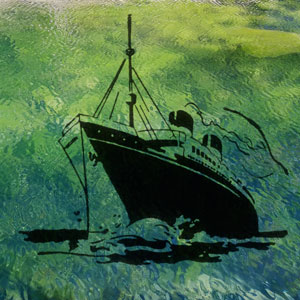 In 1923, Joseph Baum sent his son Edwin to Palestine for a year after Edwin graduated high school. In those days, lots of New York kids skipped grades and graduated young. Edwin was only sixteen. Joseph himself had dreamed of Palestine — the Land of Israel for four thousand years — but he had already been through one immigration. Edwin packed his steamer trunk in Brooklyn and boarded a ship alone. Several weeks later he was lowered from the ship in a basket, into a small boat that took him ashore to Jaffa.
In 1923, Joseph Baum sent his son Edwin to Palestine for a year after Edwin graduated high school. In those days, lots of New York kids skipped grades and graduated young. Edwin was only sixteen. Joseph himself had dreamed of Palestine — the Land of Israel for four thousand years — but he had already been through one immigration. Edwin packed his steamer trunk in Brooklyn and boarded a ship alone. Several weeks later he was lowered from the ship in a basket, into a small boat that took him ashore to Jaffa.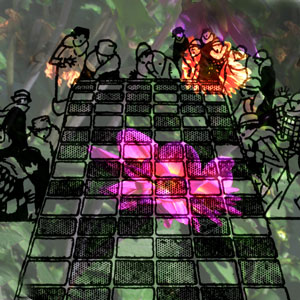 At eighteen, Evan Feuerstein imagined himself becoming a traveling bard, a poet who would know a whole poetic tradition by heart. He would be both vessel and essence of this tradition. When his parents sent him to the new country of Israel the summer before college, he knew this tradition wouldn’t be—couldn’t be—in Hebrew. Family friends tried to convince him to stay. They thought life there would appeal to Evan, who was refined and idealistic. Evan did not fear physical battles. He did fear barracks life as a refined and idealistic man who was also small and thin. But what really made staying in Israel impossible was his inability to express the inexpressible in Hebrew.
At eighteen, Evan Feuerstein imagined himself becoming a traveling bard, a poet who would know a whole poetic tradition by heart. He would be both vessel and essence of this tradition. When his parents sent him to the new country of Israel the summer before college, he knew this tradition wouldn’t be—couldn’t be—in Hebrew. Family friends tried to convince him to stay. They thought life there would appeal to Evan, who was refined and idealistic. Evan did not fear physical battles. He did fear barracks life as a refined and idealistic man who was also small and thin. But what really made staying in Israel impossible was his inability to express the inexpressible in Hebrew. In the early twentieth century, Evan’s grandfather started a family tradition of sending teenagers to the Land of Israel. The summer Evan was sent there, he photographed two Jewish children who had fled North Africa, a little boy and girl holding hands, walking an uneven path between shacks in a refugee camp near Haifa. He made the first print in the darkroom his father had set up for the boys in one of the bathrooms of their Brooklyn brownstone. Later he used a wash of bright acrylic to change the drab background and let the children walk between streams of colour that parted for them.
In the early twentieth century, Evan’s grandfather started a family tradition of sending teenagers to the Land of Israel. The summer Evan was sent there, he photographed two Jewish children who had fled North Africa, a little boy and girl holding hands, walking an uneven path between shacks in a refugee camp near Haifa. He made the first print in the darkroom his father had set up for the boys in one of the bathrooms of their Brooklyn brownstone. Later he used a wash of bright acrylic to change the drab background and let the children walk between streams of colour that parted for them.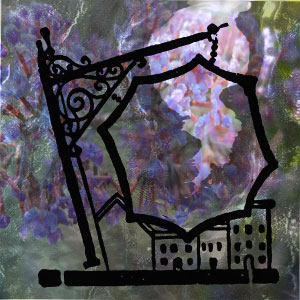
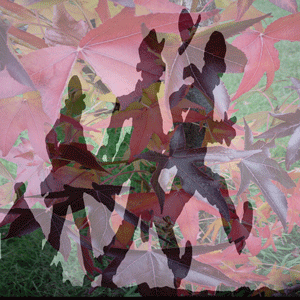 Back in the 1960s, Fourth Avenue in Vancouver was home to many hippies. They wanted to enjoy life, absorb the look and feel of things. As Thoreau said, life should be real, and you should “keep your accounts on your thumbnail.” Hippies liked beauty but didn’t want to work for luxuries; in fact, they didn’t want to work at all, and never at real jobs. Hippies might make beautiful sandals or pottery, but the point was to get by. “Time is but the stream I go a-fishing in,” wrote Thoreau. Hippies read this and wanted to see what could be caught.
Back in the 1960s, Fourth Avenue in Vancouver was home to many hippies. They wanted to enjoy life, absorb the look and feel of things. As Thoreau said, life should be real, and you should “keep your accounts on your thumbnail.” Hippies liked beauty but didn’t want to work for luxuries; in fact, they didn’t want to work at all, and never at real jobs. Hippies might make beautiful sandals or pottery, but the point was to get by. “Time is but the stream I go a-fishing in,” wrote Thoreau. Hippies read this and wanted to see what could be caught.
 Back when Evan and Joannie were homesteading on the flat along the Prophet River, Flora would mail them a large carton from Macy’s each Passover, filled with matzah, macaroons, dried mangos and papaya, and anything else she thought would be nice for the holiday. After a steady diet of bear meat, lentils, rice and carrots (the only vegetable they succeeded in growing in the far north of British Columbia) the Passover box was a welcome change.
Back when Evan and Joannie were homesteading on the flat along the Prophet River, Flora would mail them a large carton from Macy’s each Passover, filled with matzah, macaroons, dried mangos and papaya, and anything else she thought would be nice for the holiday. After a steady diet of bear meat, lentils, rice and carrots (the only vegetable they succeeded in growing in the far north of British Columbia) the Passover box was a welcome change.